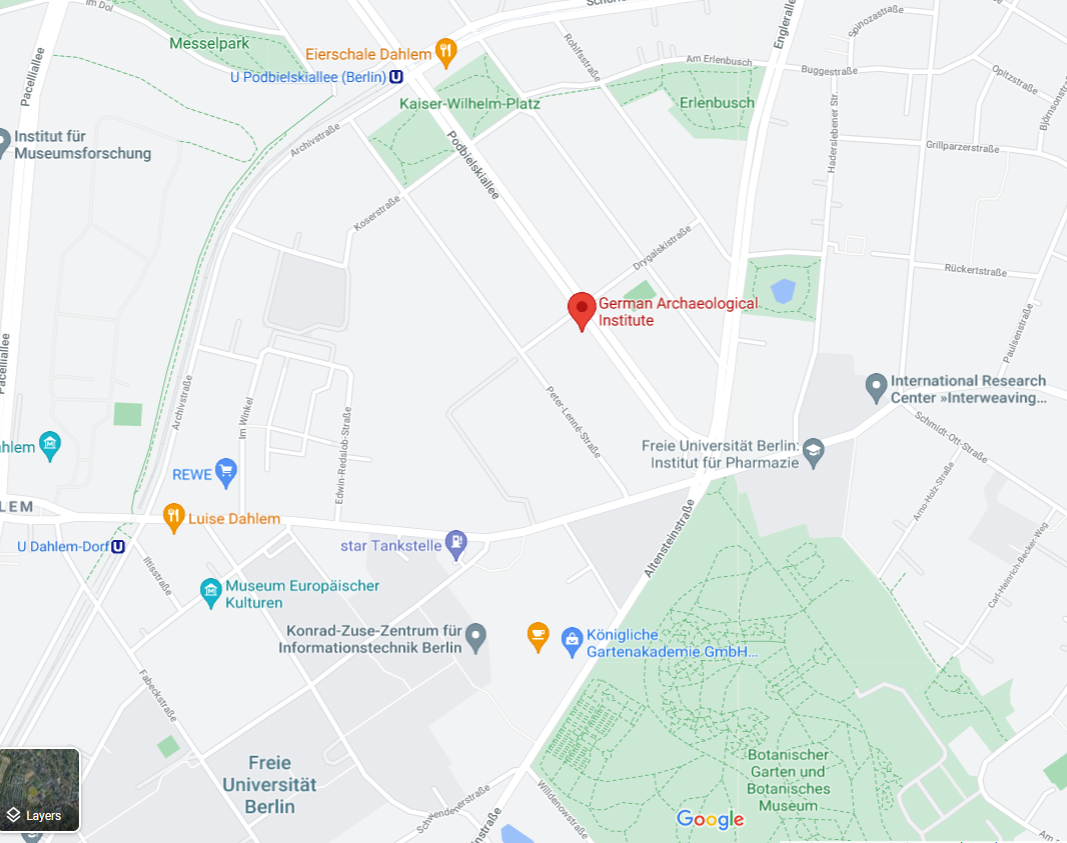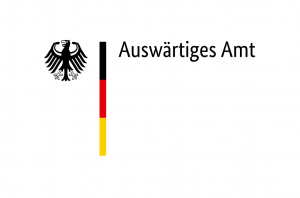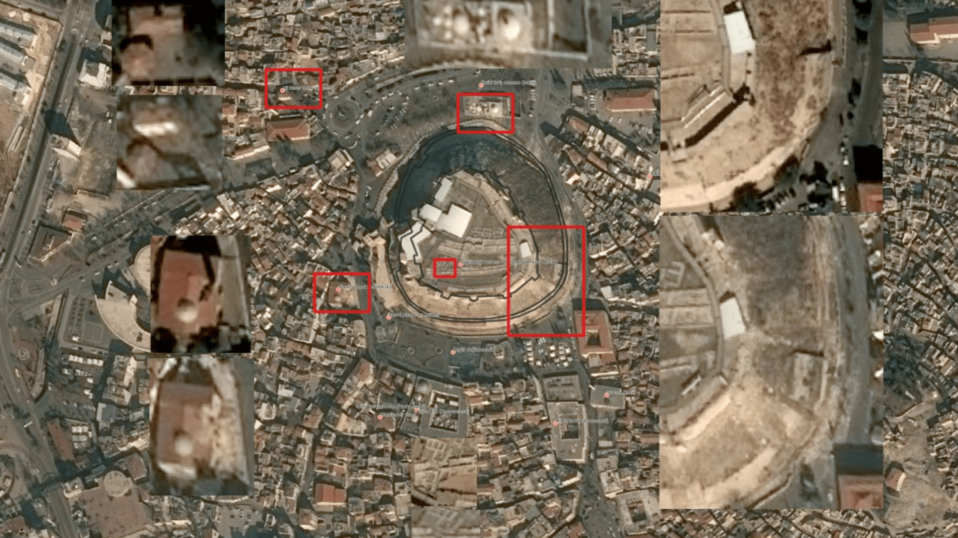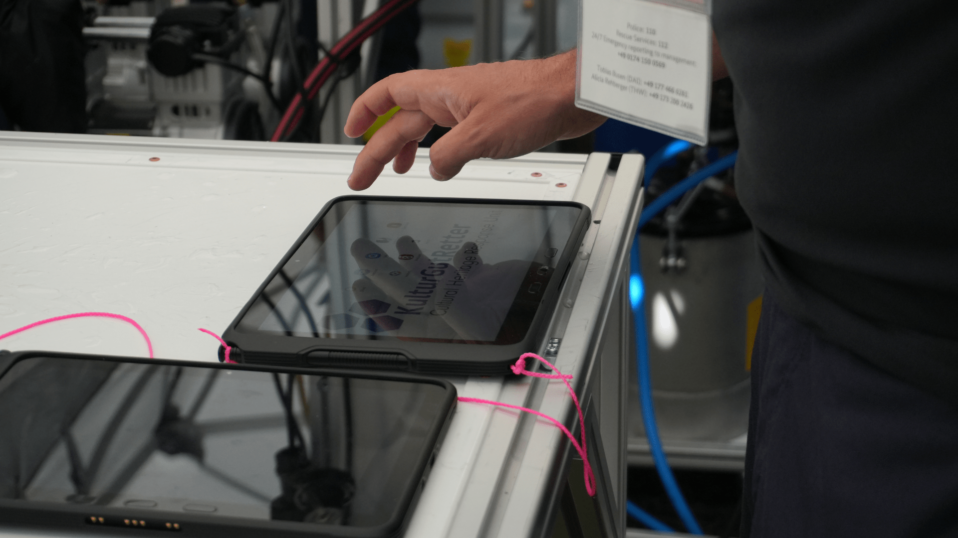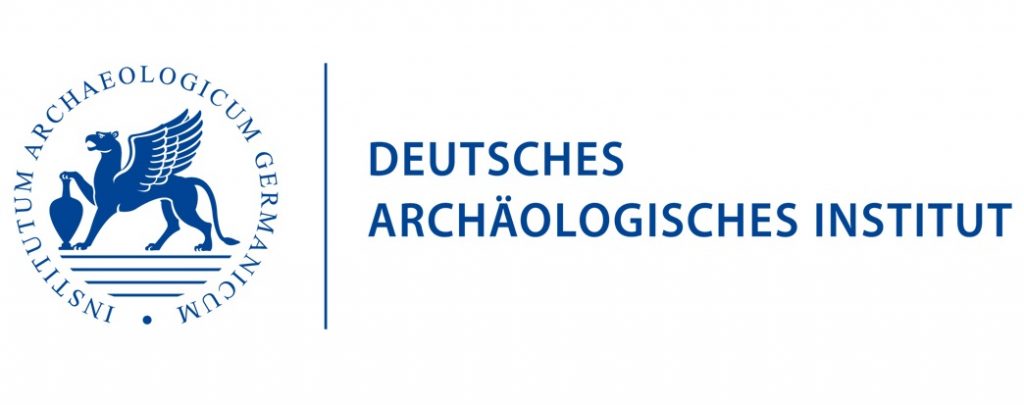KulturGutRetter One vision. One Network.


One Vision
Developing an emergency mechanism for cultural heritage in crisis situations.
One Network
The Archaeological Heritage Network (ArcHerNet) was founded in 2016 and harnesses German expertise to safeguard and protect cultural heritage worldwide.
KulturGutRetter
The KGR project is developed out of the Archaeological Heritage Network and is carried by three strong partners:
Project NEWS
Remote Sensing for Archaeological and Cultural Heritage Sites at Risk
Natural hazards and anthropogenic land-use pressures are causing destructive events to occur with increasing frequency, causing severe damage to Archaeological and Cultural Heritage (ACH) sites. As part of the project KulturGutRetter, the Remote Sensing and Monitoring
IT infrastructure for cultural heritage response missions
The Cultural Heritage Response Unit (CHRU) is implementing a digital documentation system to document both the objects themselves and the measures carried out during response missions to protect cultural heritage. The unit is equipped with its
Events 2025
Days until Event...
0
National Workshop 10-11 April 2025
Yesterday-today-tomorrow: where does the protection of cultural heritage stand in 2030?
10 April 2025 OnlineThe online workshop is part of the EU project PROCULTHER-NET2, in which the DAI and THW have been involved since 2022. The aim of the project is to work together on a stronger integration of the protection of cultural heritage into European civil protection. Accordingly, the workshop will focus on networking between the national and European levels and on the interfaces between cultural heritage protection and civil protection/civil protection.
0
European Forum 02-04 April 2025
Safe Cultural Heritage - European challenges in times of war and crisis
2 April 2025 International Cultural Center, KrakawThis event is to serve as a platform for exchanging experience and best practices among European experts on cultural heritage which is at a continued risk of natural and civilisation disasters, terrorism or intentional destruction during wars.
0
Cultural Property Protection Conference, 25-26 November 2024
CPP in crisis situations in the Hungarian National Museum
25 November 2024 Hungarian National Museum, BudapestIn face of the escalating global security landscape, public collections worldwide are exposed to a growing spectrum of threats. The conference builds on the growing international engagement in recent years and continues the dialogue started last year with conferences organised by the Museum on the topic. Constance Domenech (DAI) will illustrate the role of the EU in protecting cultural heritage in crisis, using the examples of the KulturGutRetter and PROCULTHER-NET2 projects.
German Archaeological Institute (DAI)
Founded nearly 200 years ago, the DAI is a globally active scientific institution. Operating as a federal agency within the area of responsibility of the Federal Foreign Office, it is committed to protecting, preserving and disseminating information about cultural heritage.Federal Agency for Technical Relief (THW)
For 70 years now the THW has provided technical and humanitarian aid in crises and natural disasters in Germany and abroad on behalf of the federal government. It falls within the area of responsibility of the Federal Ministry of the Interior.
Leibniz-Zentrum für Archäologie (LEIZA)
The LEIZA is an archaeological research facility founded in 1852. Part of the Leibniz Association, it combines the humanities and natural sciences with restoration expertise and is active in an international context.
From 25 to 28 September 2024, the first full-scale exercise of the Cultural Heritage Response Unit (CHRU) took place at Demerthin Castle (Brandenburg). In a fictitious earthquake scenario, experts from Germany were trained in the international protection of cultural heritage after a disaster. The CHRU is expected to be operational by 2025.
Cultural Heritage in Crisis
An emergency mechanism for cultural heritage in crisis situations
In the past crisis such as earthquakes, floods and fires have shown that in the event of such a disaster, action must be taken quickly. Climate change with its very different local effects also entails a wide range of threats to the cultural heritage of the past. To protect and preserve cultural heritage in all phases of a crisis effectively and sustainably, the essential requirements are well-prepared and rapidly available digital information as well as well-trained and competent decision-makers. For this reason, the project “KulturGutRetter – An emergency mechanism for cultural heritage in crisis situations” was initiated in the framework of the Archaeological Heritage Network (ArcHerNet).
A network to safeguard cultural heritage
The Archaeological Heritage Network was founded in 2016 in the presence of Dr. Frank Walter Steinmeier, now President of the German Federal Republic. ArcHerNet pools the expertise that exists in Germany and makes it available internationally via a network of contacts. The experience gained through the project Zero Hour – A Future for the Time after the Crisis and the modules it comprised were then used to further develop ArcHerNet’s approaches and objectives. Its scope has expanded to encompass new regions. The Middle East and North Africa in their entirety as well as other regions in Africa have come into focus more and more. Moreover there has increasingly been an effort to develop formats that are universally deployable rather than specific to certain countries or localities. ArcHerNet is coordinated by the DAI and supported by the Federal Foreign Office.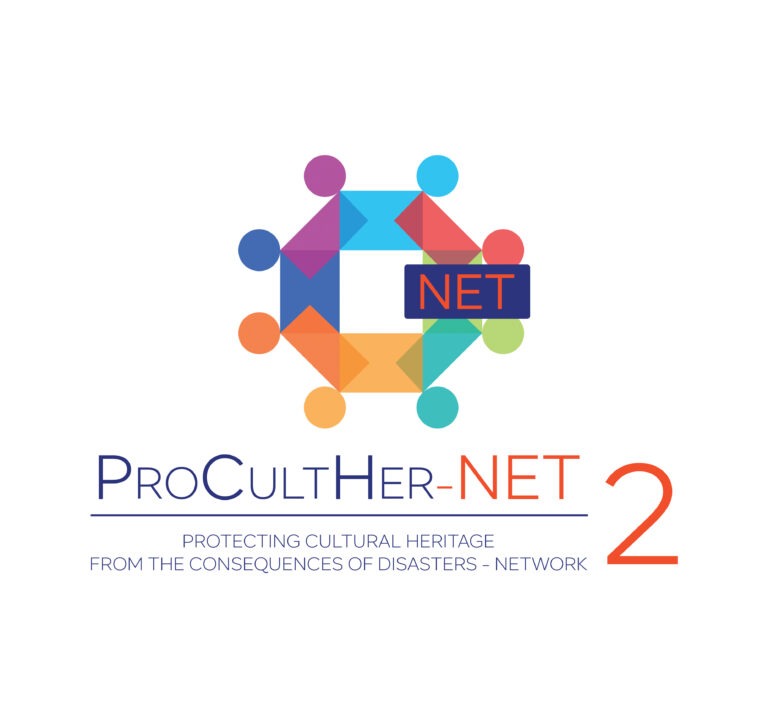
PROCULTHER-NET2
Since 2022, two of KulturGutRetter’s partners have been involved in the projects PROCULTHER-NET (2022-2023) and PROCULTHER-NET2 (2024-2025), co-funded by the European Union DG-ECHO. The German Archaeological Institute (DAI) and the Federal Agency for Technical Relief (THW) have joined forces with partners from Italy, Spain, Portugal, France and Turkey, to better integrate the protection of cultural heritage in the civil protection mechanisms, at national and European levels.
ContaCt
- KulturGutRetter | Deutsches Archäologisches Institut | Podbielskiallee 69-71, 14197 Berlin
- info@kulturgutretter.org
- presse@kulturgutretter.org
- ArcHerNet Webseite | www.archernet.org
